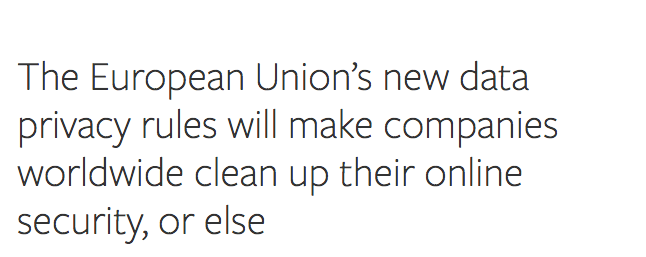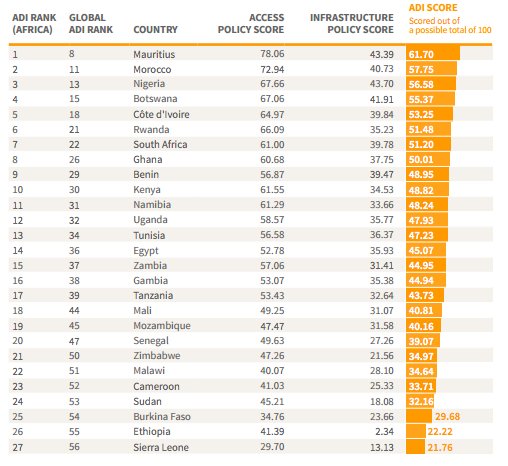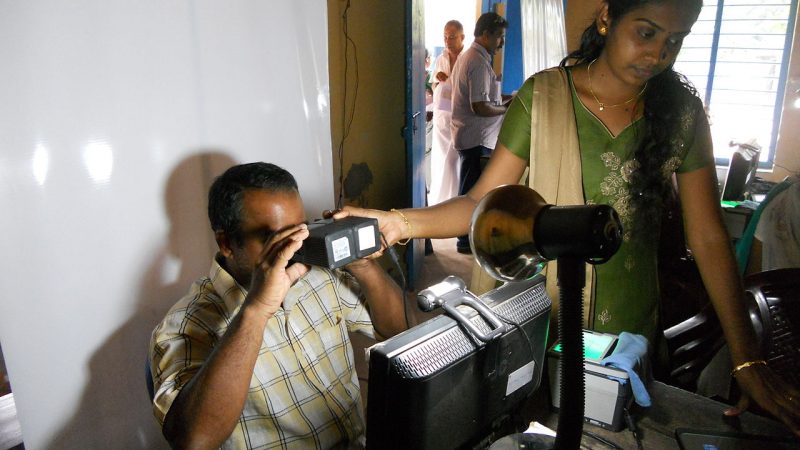Stakeholders wrangle over the Brazil Summit on Internet Governance
With the recent revelations of mass United States government surveillance, existing Internet governance arrangements have become more than untenable – for many they have become an outrage. And the solutions that governments proposed at WSIS – the IGF and the unfinished process towards enhanced cooperation – have not provided the substantial changes that stakeholders, particularly from the developing world, are now demanding. The speech that President Dilma Rousseff delivered to the 68th Session of the United Nations General Assembly on 24 September set the scene for change, describing her anger at the “grave violation of human rights and civil liberties” represented by the US surveillance revelations:
It affects the international community itself and demands a response from it. Information and communications technologies cannot be the new battlefield between States. Time is ripe to create the conditions to prevent cyberspace from being used as a weapon of war, through espionage, sabotage, and attacks against systems and infrastructure of other countries. …
For this reason, Brazil will present proposals for the establishment of a civilian multilateral framework for the governance and use of the Internet and to ensure the protection of data that travels through the web.
Following Rousseff’s speech, most of the I* organisations came together to meet in Uruguay. The outcome of that meeting marked a radical break from their previous support for the continuation of US oversight over Internet governance, and their rejection of previous proposals for new models of public policy development for the Internet. The Montevideo Statement on the Future of Internet Cooperation that they issued on 7 October records that they “discussed the clear need to continually strengthen and evolve [Internet governance] mechanisms, in truly substantial ways”, and “agreed to catalyze community-wide efforts towards the evolution of global multistakeholder Internet cooperation” including “the globalization of ICANN and IANA functions, towards an environment in which all stakeholders, including all governments, participate on an equal footing”.
But as radical a development as this was, the tumult had barely begun. On 9 October, Fadi Chehadé, the CEO of ICANN, dropped a bombshell with the announcement that, during a hastily-convened meeting that day, he had convinced President Dilma Rousseff to convene a multi-stakeholder summit on Internet governance in April 2014, which would address the issues raised in her speech and in the Montevideo Statement.
The summit would not be a UN meeting (such as the IGF, and a tenth-anniversary WSIS meeting already planned for the same month in Sharm el Sheikh). Also unlike those meetings, it would have a mandate to produce tangible outputs: a set of principles (Rouseff’s “civilian multilateral framework for the governance and use of the Internet”), a proposed new institutional framework for Internet governance that could substitute for the US oversight of ICANN, along with a decision-making mechanism for “orphan issues” (those not being dealt with in any other international forum).
The timing of this proposed summit was no less extraordinary than its mandate: for governments, planning a high-level summit in six months’ time is like planning your wedding for next week. The date chosen (which has subsequently been revised to May) falls immediately after the main WSIS+10 meeting, but before a follow-up high-level meeting that Brazil has been pushing for, that could be used to ratify the decisions taken at the Brazil summit. It would also precede the ITU Plenipotentiary in October, at which moves for governmental control of the Internet could be reasserted, if insufficient progress were made at the summit. And probably not coincidentally, it also leads into the re-election date of President Rousseff, also in October 2014.
The dust from this announcement had barely settled before all the stakeholder groups involved in Internet governance discussions were together in Bali to take stock of it, at the 8th Internet Governance Forum, which wound up yesterday. By then, accounts of the meeting from Brazil and ICANN were beginning to diverge: was it a “summit”, as Brazil termed it, or merely a “meeting” or “conference”, as contended by Chehadé? Would it propose solutions, as Brazil insisted, or would it just be for discussion, as Chehadé now described? Was the idea that the summit should be multi-stakeholder a concession that Chehadé wrought from the President, or did she have that notion all along?
Part of the reason for the divergence was that Chehadé had not discussed his remarkable proposal to President Rousseff with the other I* organisations before making it, and had caught them quite by surprise. This was evident at a series of tense and packed meetings during the week at which the proposal was further explained to stakeholders. In particular, a meeting called by the I* organisations on 23 October, that was chaired not by Chehadé but by Chris Disspain, CEO of Australia’s domain name authority AuDA, painted a very different picture to that described by Rousseff and Chehadé.
Disspain asserted that until now the multi-stakeholder Internet governance system had been maintained by the United States and a “quiet coalition of the willing”, and warned of the risk that more Internet governance issues would “fall into the hands of governments”. He announced plans to build a coalition of thought leaders to oppose such moves towards a “governmental or government-centric” model, and to spearhead a grassroots campaign to build support for this position.
Downplaying the importance of the summit, Disspain described it as “not the end game, just a stop on the road”, and asserted that “we seem to have the reins of that meeting, and we need to keep hold of those reins”. Even Chehadé, whilst clearly having a broader conception of the summit’s purpose than Disspain, similarly boasted about the technical community’s leadership of the event, saying “we can make it our meeting”, and claiming that that he had told the Brazilians that the meeting would not be about proposing solutions, as this would be taking things too fast.
This did not go down well for some in the room, particularly from civil society, who saw in the summit a potential way to address the serious human rights violations committed through mass surveillance, and to accelerate the long-delayed globalisation of oversight of ICANN and its functions. They were alarmed by the prospect of the summit being hijacked to serve the narrow interests of the Internet technical community, which had been so quick to obstruct previous proposals for reforms to Internet governance, such as through the IGF and enhanced cooperation processes.
As the IGF closed yesterday, a small group of hastily-nominated stakeholder representatives met that day to discuss the way forward. The technical community and private sector nominees expressed little enthusiasm for the summit at all, and seemed more interested in the new coalition that that the technical community had announced to oppose governmental involvement in Internet governance.
But Chehadé had released a genie that could not be returned to its bottle. The delegation from Brazil, whilst taken just as much by surprise by the rapidly-unfolding summit plans as everyone else had been, had seized the moment, along with much of the limelight at the 8th IGF. Whilst details remained sketchy – they had no clear plan for consulting with stakeholders, for example – they had promised to release a more detailed plan of the summit by 11 November, and meanwhile were also recruiting 3-4 other countries as co-hosts of the summit. At the top of their list was Germany, in the wake of revelations that the United States may have tapped Chancellor Angela Merkel’s phone. India, South Korea and Australia are also possible candidates.
In only a month since President Rousseff’s speech to the United Nations so much has changed, and yet at the same time so little. Whilst taking tentative steps forward with the Montevideo statement, the technical community has already begun to retreat from its full implications, in the fear of their role being overshadowed. If the old guard of the technical community have their way, another orchestrated WCIT-style “grassroots” campaign against Internet governance reforms may be in the offing.
But as the only clear driver for concrete reform in the ten years since WSIS, the proposed summit has also excited and energised other stakeholders, who see such change as inevitable and overdue, and who regard Brazil as a more trustworthy country than Cuba, Russia, Iran or China to lead this effort using an inclusive, multi-stakeholder process. It would be a shame to allow that opportunity to slip by, all for the sake of preserving a model of Internet governance that many now agree has become outdated and inadequate for the Internet of today.
Continue reading in “Brazil Summit heralds major Internet governance reforms” at Digital News Asia.
source:http://igfwatch.org/discussion-board/stakeholders-wrangle-over-the-brazil-summit-on-internet-governance



